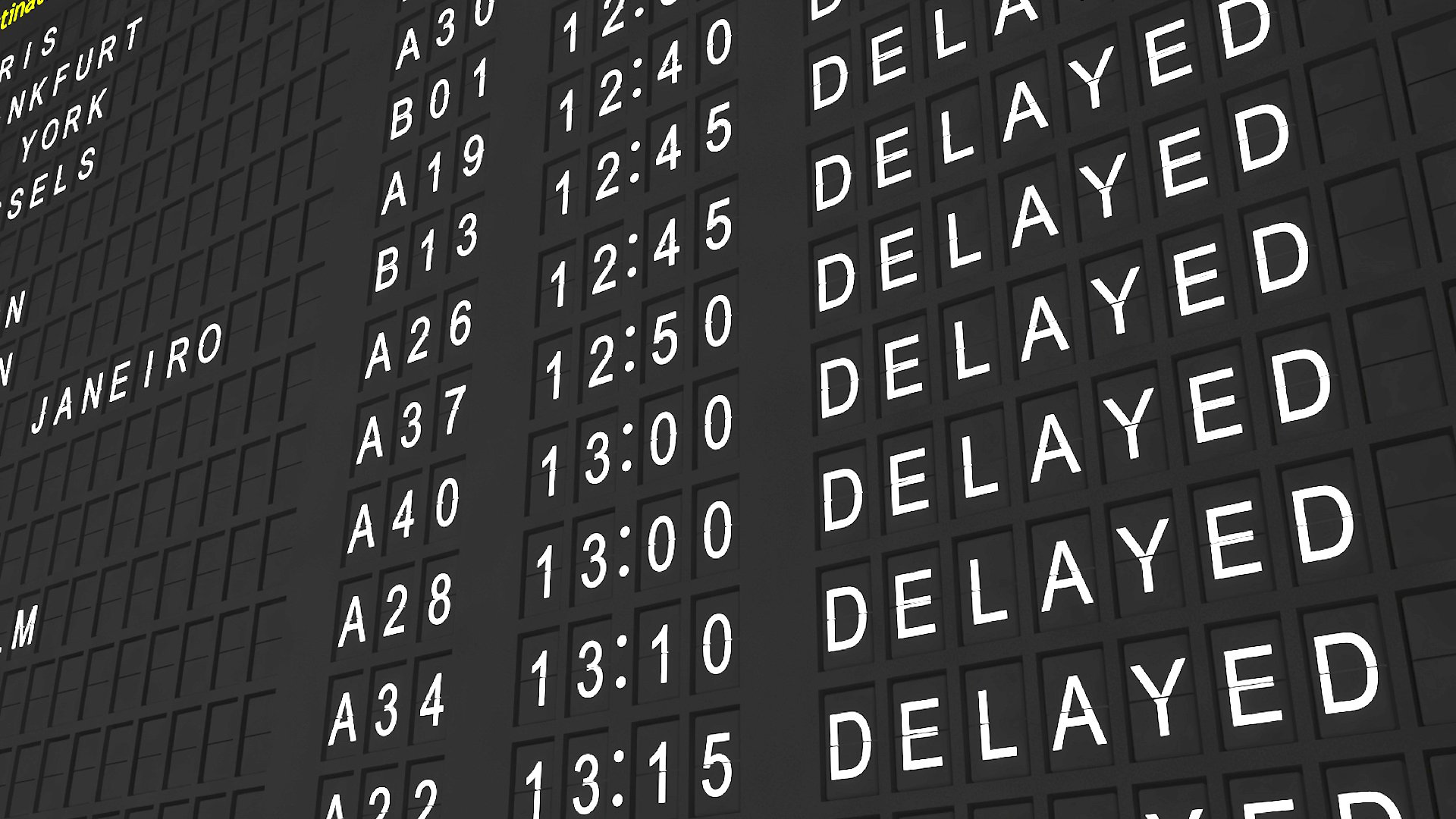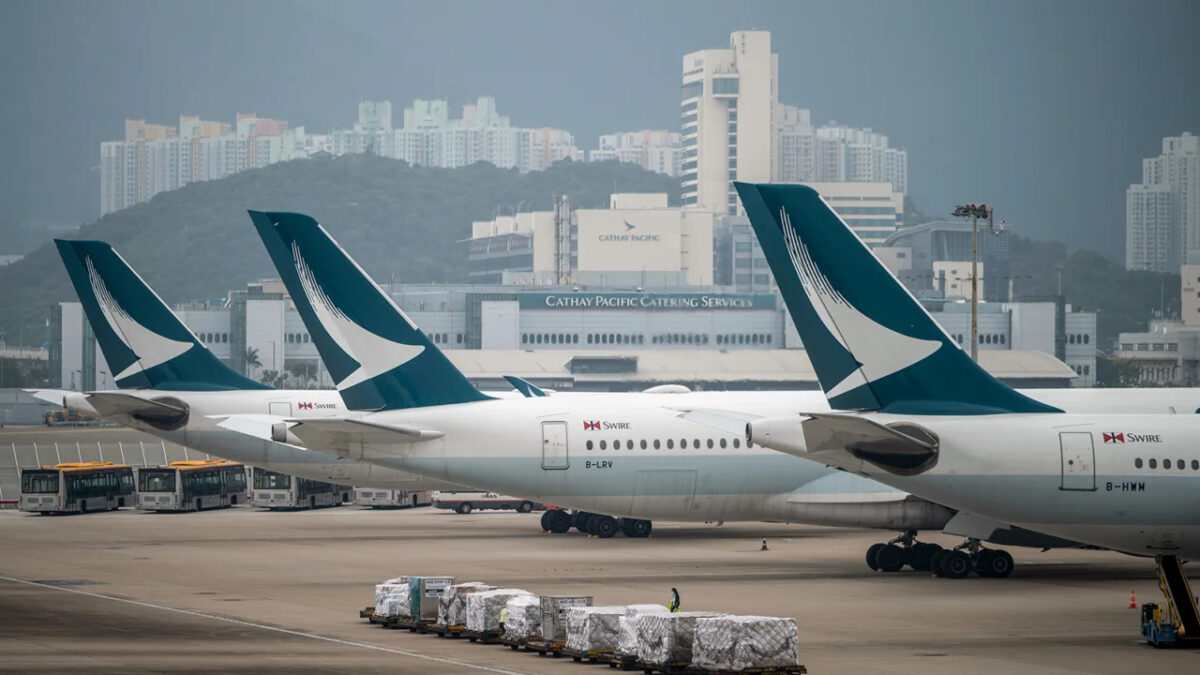
We've all suffered the pains of a delayed flight, but the thought that an airline is delaying you on purpose could really be the final straw. Allegations have surfaced regarding pilots at Cathay Pacific deliberately taxiing at slow speeds to the gate, but you might be more sympathetic to their motives than you'd expect...
Airline delays are such a commonplace and comprehensive issue that even the top dog himself President Joe Biden has recently announced his plans to make airlines pay for the poor scheduling, which follows hot on the heels of the naming and shaming of Australia's most regularly delayed carriers.
This week, however, it's been revealed that one airline's employees might actually be delaying its passengers on purpose. Though it's a move that's understandably sure to rile up customers, their reasons for doing so might inspire a little more sympathy than you'd expect...
Allegations have surfaced regarding pilots at Cathay Pacific deliberately taxiing to and from passenger gates at slower speeds than is deemed efficient or safe. Why? Supposedly in an effort to strong-arm the carrier into giving them a pay rise.
WATCH: Singapore Airlines shows us what happens before the plane even hits the runway.
The Hong Kong-based airline recently launched an internal investigation after it noticed that a number of its planes were taking longer than expected to reach their designated gate after landing at Chek Lap Kok International Airport. With significant discrepancies compared to rival carriers, concerns over runway congestion and delays have come to a head.
The reasoning behind this seemingly very deliberate and coordinated effort from pilots is - officially speaking - unclear at present time. However, if we delve a little deeper it becomes clear that their slower taxiing pace - in some cases plummeting to 15 knots down from the recommended 30 - may have something to do with decisions made by the airline's senior management team.
Cathay Pacific was one of the hardest-hit airlines in the initial wave of the COVID-19 pandemic and - like so many - had to make some tough decisions to stay afloat. Facing a staggering 98% drop in revenue, the carrier furloughed approximately 20-30% of its workforce, while the remaining employees were forced to accept unwelcome and unexpected salary cuts.
Three years later, progress has been made: operations now stand at 50% of their pre-pandemic levels and profit margins are growing accordingly. However, staff salaries remain 30% lower than before the crisis and employees seem openly dissatisfied with new contracts offered by the airline.
 The Cathay Pacific fleet waiting to spring - er, crawl - into action. Image: Getty
The Cathay Pacific fleet waiting to spring - er, crawl - into action. Image: Getty
But why would pilots choose this oddly specific type of direct action, rather than a more conventional strike or petitioning of the Cathay Pacific C-suite? Well, it may be something to do with the airlines remuneration policy...
Sources indicate that pilots are paid from the moment the aircraft engines are started until they are shut down at the end of the flight. By prolonging taxiing time, pilots may be trying to make small but not insignificant increases to their own pay packet, with the added bonus of simultaneously damaging the carrier's reputation, incentivising a response from senior management.
There remain some question marks over this theory: industry insiders suggest that the potential financial gain from elongated taxiing periods would be so minimal as to render it an unlikely motivation. Rather, pilots may simply have lost the pay-induced drive to prioritise runway efficiency, inspiring a more leisurely approach to taxiing.
When approached for comment, Cathay Pacific gave a tight-lipped and rather opaque response:
"Cathay Pacific works closely with airport authorities in Hong Kong and markets that we operate. We take any feedback from our discussions seriously. Safety is always our top priority. We pride ourselves on our high levels of proficiency and operational standards."
Cathay Pacific Spokesperson
Regardless of the pilots' precise motivations, the moral of this story seems pretty clear overall, especially when we read it in conjunction with a number of similar stories from across the world where strikes, marches, and even rioting over pitiful pay packets are becoming an everyday occurrence:
You have to pay people properly, and you have to increase their pay in line with inflation. If you don't, people will notice their quality of life dropping while their workload increases or - at best- remains the same. That's not a deal most people are willing to make for long.
This is only made truer by the fact that airline profits are now soaring after a post-COVID bump. When employees felt that their employers were suffering alongside them, as was the case during the pandemic, they're a lot more likely to be lenient. As soon as shareholders' pockets are bulging, that tide will inevitably turn.
If Cathay Pacific follows in the footsteps of Emirates and uses their profits to motivate and reward staff, then I've no doubt their planes will be taxiing in no time. If not, then they may have to prepare for taxiing not just slowing, but grinding to a halt.
The post Why This Airline’s Pilots Are Delaying Their Passengers On Purpose appeared first on DMARGE.
0 Commentaires